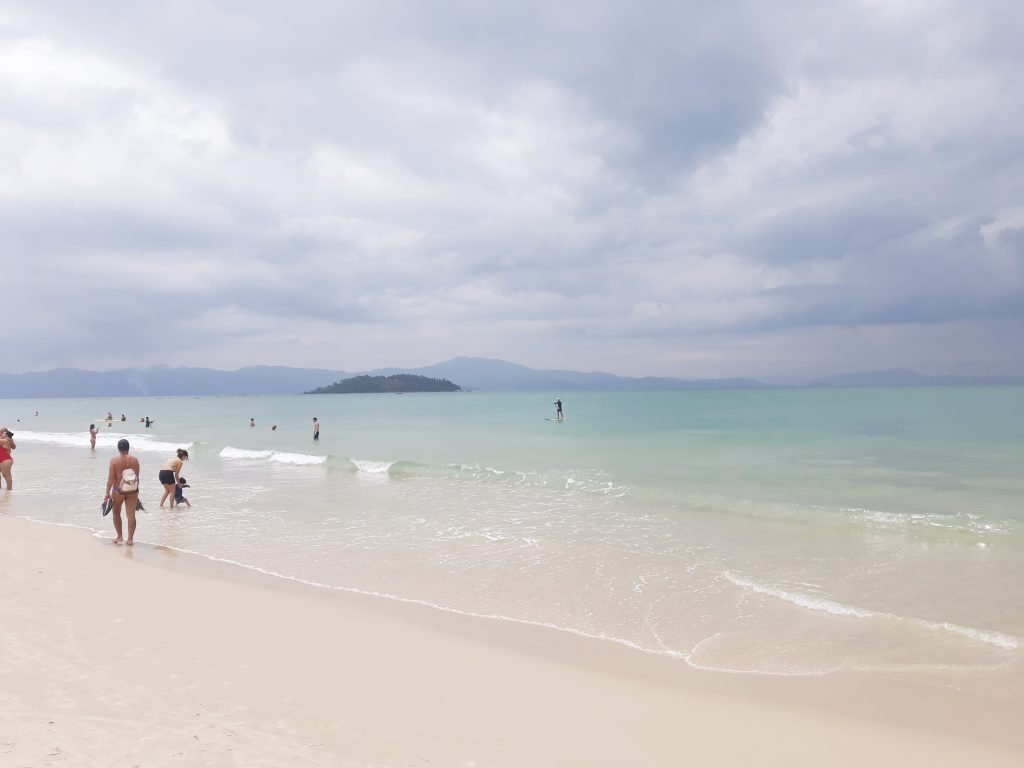Is Montreal (the francophone major city in Canada) a Safe Place?
Montreal is the second largest city in Canada and the largest city in the province of Quebec, with a population of over 1.8 million people, and a metropolitan area with more than 3.6 million residents.
The nickname of the city, Sin City, has a curious origin: due to its legendary nightlife, Montreal rose to prominence as one of North America’s “sin cities” during the American Prohibition era. That is why it is also known as Festival City.
Another interesting fact that you probably didn’t know is that Montreal is the second largest city in the world by the number of French speakers, after Paris. We also wrote a guide about Canada as a retirement destination for pensioners and remote workers.
Being a former colony of France in North America, Montreal may be subject to comparisons with another famous city: New Orleans. While both have the festive atmosphere as a similarity, a question remains: Is Montreal as violent as New Orleans? Or…
Is Montreal Safe to Visit Or Live?

According to research, Montreal is a fairly safe city. It would be safer, for example, than some relatively violent European cities like Bradford or Marseille and on the same level as the safest cities in the US.
But even so, it is not the safest city in Canada. To avoid any unpleasant situations while in Montreal, tourists should be careful and pay attention to suspicious people around them.
When we mention Montreal, people often will find it beautiful, except for the talks about the ugly weather and harsh winters afterward. That is all true, but if we investigate a little further and deeper, we come to Montreal’s underground gang problem (see more further below), something similar to a problem observed in Athens, Greece.

Montreal Crime Rate
As in any other major city, there are some typical small crimes and thefts, so tourists should watch out for their valuables.
Some areas have a bad reputation due to drug addiction and prostitution. 2021 ended with 36 homicides, a sharp increase over the past years.
Montreal Crime Statistics
Property statistics are calculated annually per 100,000 residents.
The total crime rate in Montreal is 2,957, with a national total rate of 4,223.
Violent crime: 1,003 cases per 100,000 residents in Montreal, while nationally the rate is 1,042.
Property crime: Montreal has a rate per 100K residents of 1,954, while the national rate is 3,181.
As for gangs in the Montreal underworld, the older groups are mostly Italian, French, Irish, and Russian, but there is an expansion of gangs of Jamaican, Haitian, Latin American, Lebanese, Asian, Sri Lankan, or Cambodian origin.
The West End Gang currently consists of approximately 125 to 150 members and associates. It has been active since the early 1900s and is still active today. The group frequently cooperates with the Montreal Mafia and the Hells Angels in massive drug shipments and remains one of the country’s most powerful and profitable criminal organizations.
The gang, which originated in the early 20th century, was known at first as the Irish Gang, and the name West End Gang seems to have been adopted in the late 1970s. A disproportionate number of the gang’s members come from the mostly Irish-Canadian Pointe-Saint-Charles district of Montreal.
From the 1950s to the 1970s, Montreal was known as the “Bank Robbery Capital of North America”, as Montreal had more bank robberies than any other city in North America.
Emergency Numbers
While we hope we never face a dangerous or very unpleasant situation during a travel to Montreal, tourists must know who they should call in those situations. That is why we recommend, for your personal safety, having these numbers on hand. Some of them are also valid for other Canadian cities. Here’s what you need to know:
- Emergency (Police, Fire, Ambulance): 911
- Info-Santé 811 is a free and confidential telephone consultation service available 24 hours a day, 365 days a year. Dial 811 for non-urgent health issues.
- Poison Control Center: 1-800-463-5060
- Urgence-Détresse (crisis centers): 1-866-277-3553
- Tel-Aide (listening center): 514-935-1101
- SOS Violence Conjugale (domestic violence): 1-800-363-9010
- Youth Protection: 514-935-6196 (day), 514-896-3100 (evenings and weekends)
Please note that in the event of a serious problem or emergency, it is important to dial 9-1-1 as soon as possible.
Places and Neighborhoods in Montreal to Avoid
No, there are no dangerous neighborhoods where tourists would risk their lives, like in Los Cabos or Rio. There are just a few neighborhoods in Montreal to avoid. The only problem areas are the neighborhoods impacted by drugs and prostitution.
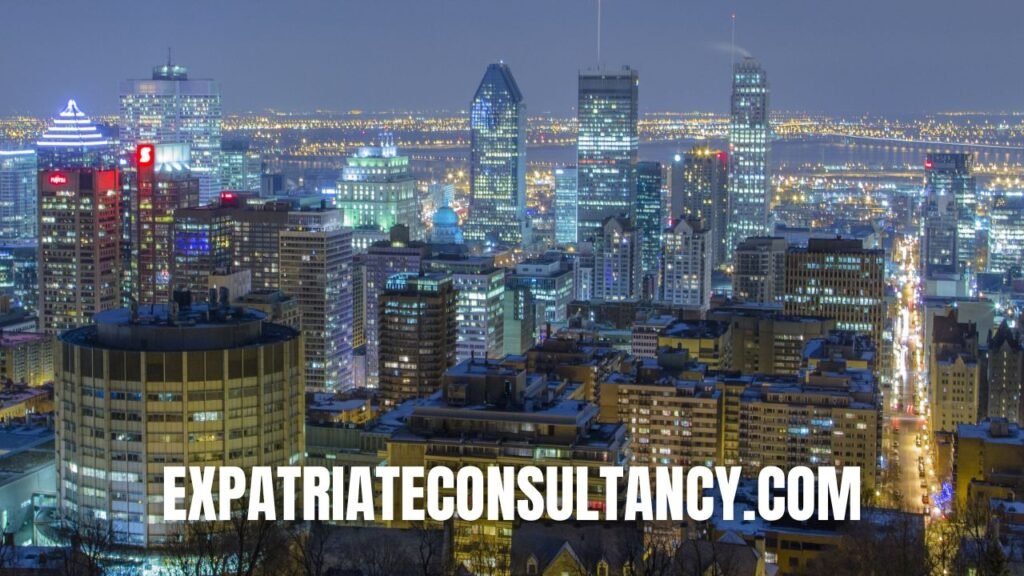
Montreal travel gurus advise staying away from the following streets after dark:
Hochelaga neighborhood (Hochelaga-Maisonneuve or HoMa)
It is not dangerous if you are street smart. It is definitely not dangerous compared to American cities, but seedy. You can tell that this area is a poor area of the city. There seem to be a lot of homeless people and people with mental health problems roaming around.
The most common types of crime in Montreal are home and business break-ins. About 800 are reported each month, on average. Considering the number of homes on the island, less than a tenth of one percent are at risk. Most break-ins are concentrated in the downtown, Plateau Mont-Royal, and Hochelaga-Maisonneuve boroughs.
Le gay village
Originally a poor working-class area, the Centre-Sud neighborhood became increasingly attractive to the gay and lesbian community after the migration of many LGBT businesses from other parts of the city. Armed robberies are rare in most areas of Montreal, but not in the Gay Village and Latin Quarter neighborhoods. They have seen a combined 300 robberies since 2015 — many times higher than most places in the city.
Besides the areas mentioned above, it is worth mentioning that the former red light district in Montreal, located in the Ville-Marie borough’s Saint Laurent Boulevard and Saint Catherine Street intersection, is not a place known for its safety.
Where should I stay? The Safest Areas of Montreal
Even with its brutally cold winters, 376-year-old Montreal has never lost its joie de vivre mindset. It’s hard to find a day in the city where there’s not some kind of festival going on, even in the dead of winter.
The most popular areas to stay in Montreal, along with notable points of interest and lodging options, are:
Old Montreal
This stunning historic neighborhood dates back to the early 17th century. Located near the Saint Lawrence River waterfront and spanning several cobblestone blocks, Old Montreal is brimming with landmark sites, markets, museums, shops, architectural treasures, and some of the city’s best bars and restaurants.
Like some districts in Buenos Aires (Argentina), it is one of these rare places in North America with a truly European atmosphere.
There are plenty of inexpensive hotels that are in pretty good shape, and the people are very sociable. One of the best-cost benefit accommodations in the region is the Maison Saint-Vincent By Maisons & co.
Plateau Mont-Royal, the place to stay in Montreal for families and couples
Plateau Mont-Royal, a decidedly laid-back neighborhood, is known for its student-friendly atmosphere and idyllic townhouses, making it an excellent choice for families and couples seeking a more intimate setting.
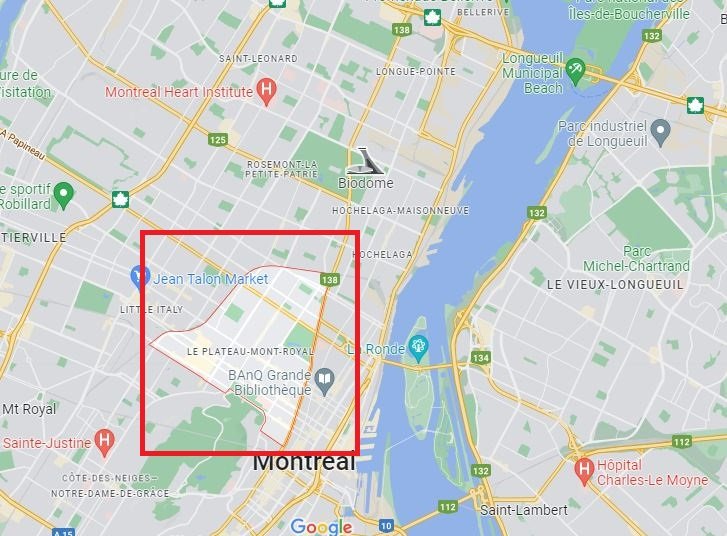
The Quartier des Spectacles is the best place to stay in Montreal for nightlife.
There are several theaters, cinemas, bars, and restaurants in the nearby Quartier Latin that are worth visiting. If this is what you are looking for, check out these bars and clubs to experience the city’s vibrant nightlife.
- Mayfair is a cocktail bar in Montreal that has a Victorian-era vibe. Try out the amazing drinks and enjoy the music.
- Club Pelicano is a peculiar bar in the heart of Downtown Montreal. It is a great place to enjoy the local nightlife. The quality of its cocktails and its décor will charm you and make you want to visit the place again and again.
- Newspeak is for anyone looking for electronic music in a dark and intimate nightclub environment. If this is your case, this is the club for you. At this fairly easy-going club, you will find drinks at a low price. As the music turns on and the room goes dark, dance your heart out.
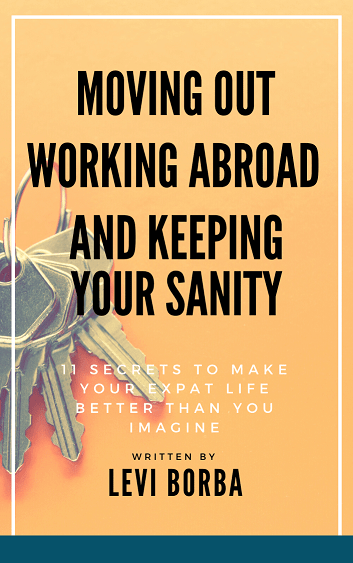
Conclusion: Is Montreal a Safe Place?
Yes, Montreal is pretty safe, especially when compared to New Orleans in the US, another former French colony. Even relatively safe cities in countries like Mexico (eg: Guadalajara) are more dangerous than Montreal.
Montreal is a safe city especially when compared to other major cities in Canada, such as Toronto (more about it below). According to Statistics Canada, Montreal has one of the lowest crime rates among Canada’s larger cities, with 3,275 incidents per 100,000 residents.
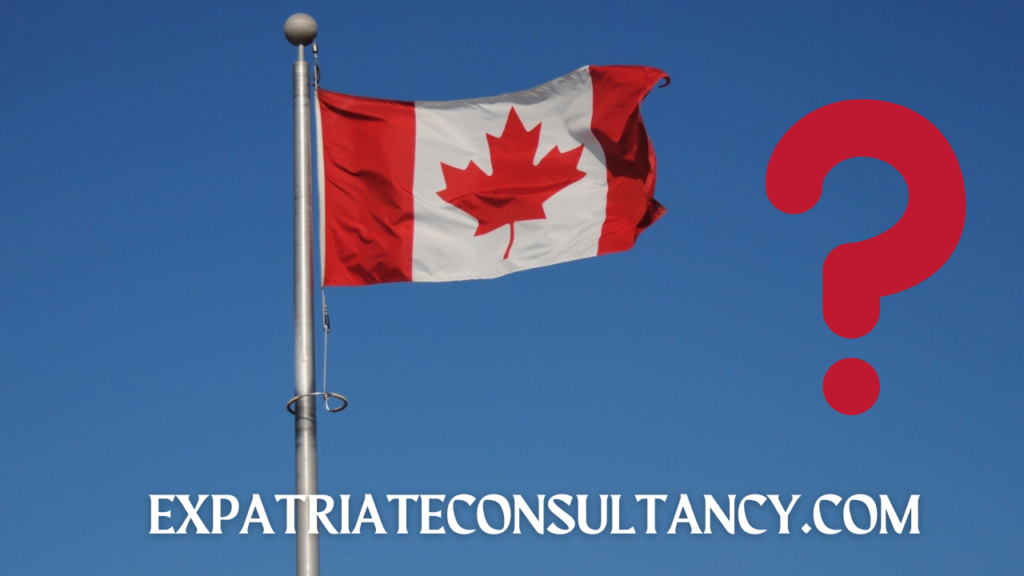
While there are some neighborhoods to avoid (more about it in previous paragraphs), such as Hochelaga and Montreal Nord, the city is generally considered a safe destination for tourists.
When visiting Montreal, it is important to take normal travel safety precautions (check our tips below), such as keeping an eye on your surroundings, being polite and respectful of others, and knowing emergency numbers. Petty theft is the most common crime in Montreal, so it is recommended to keep valuables close to you at all times and avoid flashing cash. Additionally, it is a good idea to wear a cross-body bag or purse and avoid leaving your drink unattended.
Montreal has a well-developed public transportation system, including the underground metro, which makes navigating the city easy and convenient. However, it is important to be aware of your surroundings, especially when walking alone at night or in crowded places4. Montreal’s sidewalks can be dangerous in the wintertime, so it is recommended to wear waterproof footwear and be cautious when strolling on icy sidewalks.
However, there has been an upsurge in crime recently, and the likelihood of becoming a victim of crime is higher in some areas.
Avoid certain places, like:
- Hochelaga-Maisonneuve or HoMa
- Le gay village
Some better areas to stay if you are visiting Montreal:
- Old Montreal
- Plateau Mont-Royal
- Quartier des Spectacles (if you are looking for nightlife).
If living in French-speaking Canada is not for you, check out our same guide about Vancouver or about Toronto, the largest city in Canada and with a huge expat community.
TL;DR: Montreal is generally safe, but here are some extra tips
1st — If you are visiting the city, there are plenty of options in terms of luggage storage, so you don’t need to walk around with your carry-on bags. Reliable, convenient, and inexpensive luggage storage services you can find at Radical Storage.
2nd — If you want to walk around and see some gorgeous spots without the risk of getting lost (or worse), hire a guide. You can find some amazing and reliable guides and tours at Viator. They will give you insider information about historical facts and curiosities, and also warn you of risky areas and keep you safe.
3rd — Areas surrounding airports and train stations can be dangerous. Book a transfer in advance from the YUL airport (or from any station) to your destination and vice versa, so you can avoid scammers and criminals. I often used Get Transfer for that and it always worked fine.
4th — Stay in a good hostel. Hostels are usually in the safest parts of cities, unlike hotels. Most hostels have private rooms that are as comfortable as a hotel, plus a friendly staff to give information. When looking for hostels, I visit Hostelworld and filter for those above grade 7.
5th — As travel insurance for visiting Montréal (and any city in Canada), we recommend Ekta.
If you enjoyed this article answering if Montreal is safe, here are a few other reading suggestions for you:
The Most Stupid Thing You Can Do in 5 European Capitals
The Most Violent Cities in Europe BY COUNTRY
THESE Are the Cheapest Cities to Fly to In Europe
Levi Borba is the founder of the Expatriate Consultancy, creator of the channel Small Business Hacks and the channel The Expat, and a best-selling author. Some of the links of this article may be affiliate links, meaning that the author will have a commission for any transaction.

